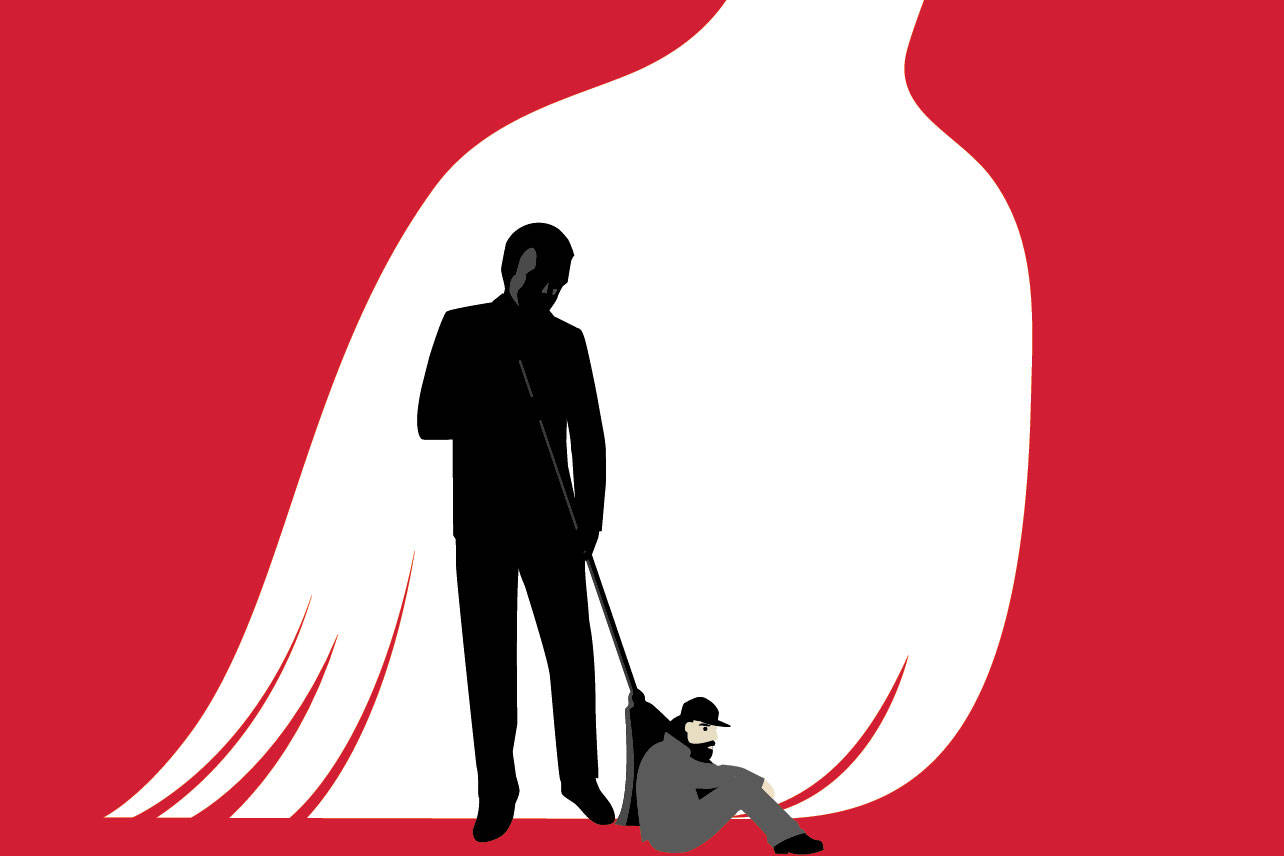Last week, Mayor Ed Murray signed emergency orders establishing three city-sponsored homeless encampments in Licton Springs, Georgetown, and near White Center. The two tiny house villages and one tent encampment, collectively hosting a maximum of 210 residents, are a welcome if belated step to reduce harm in this ongoing humanitarian crisis. Seattle now sponsors six encampments sheltering about 400 people, in addition to the handful of church-sponsored homeless encampments and innumerable unauthorized camps that exist across the city.
Thank you, Mr. Mayor. These encampments will save lives.
Also last week, the state ACLU filed a lawsuit asserting that the City’s policy of roving mass evictions violates the Constitutional rights of homeless people who have nowhere else to go. Specifically, the suit alleges that the sweeps violate the Fourth Amendment’s protection from unreasonable search and seizure and the Fourteenth Amendment’s right to due process. The lawsuit underlines the fact that despite the new encampments and a lot of promises from City Hall, Seattle leaders are still playing Whac-a-Mole with the thousands of homeless people sleeping on our streets.
We’ve known about this problem for some time. In 2015, the Homeless Advocacy Research Project (HARP) at Seattle University Law School showed in detail how Seattle, like many other cities in Washington, deprives homeless people of spaces in which to legally defecate or sleep, in effect making their existence a crime. Later that year the Department of Justice agreed, arguing in a letter to the court in Bell v. Boise that, since the Eighth Amendment prohibits prohibitions on unavoidable conduct, cities that ban homeless people from publicly camping are violating the Constitution (unless the cities provide adequate alternative shelter, which Seattle doesn’t).
For a while last summer and fall, it looked as if these and other warnings might be heeded. City Councilmembers Mike O’Brien and Sally Bagshaw joined forces to delay by months the planned eviction of the Jungle, to September; this ensured more time to prepare and evacuate. In August, O’Brien also introduced an ACLU-penned bill that would require the city to provide adequate housing before evicting anyone, though the city could relocate people away from dangerous locations or public spaces like football fields. Seattle, it seemed, was finally adopting a harm-reduction approach to homelessness—that is, working with people where they are instead of punishing them for not being better.
But then Bagshaw worked to block, then dilute, O’Brien’s anti-sweeps bill. The Council put both versions of the bill on hold indefinitely, waiting for an alternative from the mayor’s office. Murray tasked a task force with brainstorming new policy to govern how Seattle evicts campers; after a few weeks of meetings, their main conclusion was that they didn’t know enough to make informed recommendations. The mayor’s office now promises that it’s close to publishing a new draft of a homeless-evictions policy based on the task force. While policy has stalled, evictions are proceeding apace—the ACLU complaint says there have been more than a thousand in the past two years—and the Office of Civil Rights recently stopped sending observers to them.
It makes sense, then, that the ACLU would now pull the trigger and file their suit. While the lawsuit has only two homeless plaintiffs right now, the ACLU hopes to make it a class-action lawsuit representing the thousands of homeless people whom Seattle has uprooted and seized property from. For all the compassionate noise made in City Hall, litigation—with its threat of bad publicity, court orders, and heavy expense—may be the only way to prod our city’s leaders toward pragmatic decency.
What would that look like? In the short term, increasing the number of authorized tent encampments and/or tiny house villages until supply meets demand—i.e., enough to host thousands rather than hundreds. Pragmatic decency would also mean a policy of limited encampment evictions, in which the city could remove encampments from unsafe or unsuitable locations, but would have to relocate them to a nearby site. This is what the ACLU/O’Brien bill proposes. The Council should reconsider it.
And Mayor Murray should reconsider his ongoing “cleanups” of unauthorized encampments. As long as homelessness exists, we must have somewhere for homeless people to exist. Anything else is both cruel and irrational.
editorial@seattleweekly.com





